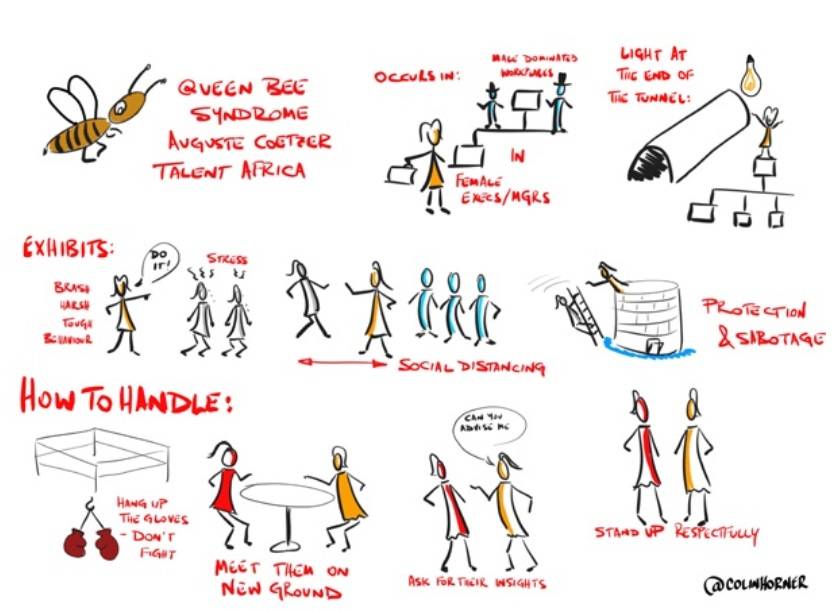Queen Bee Syndrome Explained
Queen bee syndrome describes a behavior in some women, particularly in male-dominated workplaces, where they undermine or even sabotage the success of other, often younger, women. This can look like:
- Acting hostile or condescending towards female colleagues.
- Hoarding knowledge or refusing mentorship opportunities.
- Aligning themselves with men for power or advancement.
This creates a tough environment for junior women, hindering their progress.
Glass Ceiling vs. Queen Bee: Two Different Challenges
While both syndromes impact women’s careers, they’re distinct:
- Glass Ceiling Syndrome: An invisible barrier that prevents women from reaching top leadership positions.
- Queen Bee Syndrome: A woman in power acting against the interests of other women.
Some see QB syndrome as a coping mechanism for women navigating a challenging environment. However, it ultimately weakens female solidarity and advancement.

image source – click
Queen Bee Syndrome in Aviation
Aviation has a significant gender gap. Though the number of female pilots is growing, they remain outnumbered. Queen bee syndrome can exist in aviation workplaces, creating a hostile environment and hindering female pilots’ progress.
Here’s how QB syndrome can affect women in aviation:
- Senior female pilots might downplay the achievements of junior female pilots.
- Women in leadership roles might be reluctant to mentor or advocate for other women.
- A culture of exclusion can be formed, discouraging women from pursuing or staying in aviation.
Addressing queen bee syndrome is crucial for a more supportive and inclusive environment for women in aviation. Here are some solutions:
- Mentorship programs connecting senior and junior female aviators.
- Open communication channels to address bias and discrimination.
- Celebrating the achievements of all women in aviation, fostering a sense of community.
By working together, women in aviation can overcome both the glass ceiling and queen bee syndrome, paving the way for a more equitable industry.
Why the Connection is Complex
There isn’t a guaranteed link between overcoming the glass ceiling and developing QB syndrome. Some women who break through these barriers become strong advocates for other women, while others might exhibit queen bee behaviors. Here’s why the connection is complex:
- Coping Mechanism: Some women might see queen bee behavior as a way to navigate a challenging, male-dominated environment. They might distance themselves from other women to avoid reinforcing negative stereotypes.
- Individual Choices: Ultimately, each woman who breaks the glass ceiling makes a personal choice about how they interact with other women. Supportive mentors can play a big role in shaping these choices.
References and Further Reading Links:
- https://www.wai.org/ for Women in Aviation International’s “Women in Aviation: 2023 Edition” report
- https://www.wai.org/chapters/sofly for The Society of Women in Aviation website


